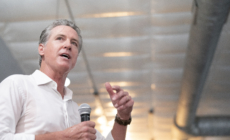-
Bibi’s Empty Victory Lap - 16 mins ago
-
New Mexico Flash Flooding: House Seen Swept Away in Roaring Waters - 24 mins ago
-
Lakers’ Deandre Ayton Doesn’t Hold Back About Luka Doncic - 59 mins ago
-
Wildfire on Edge of Marseille Injures More Than 100, Officials Say - 60 mins ago
-
How to Buy Kevin Durant Houston Rockets Jersey: Shop KD NBA Gear - 2 hours ago
-
Wildfires Scar Syria Anew - 2 hours ago
-
Gavin Newsom’s Reaction as Top Democrat Hints at Governor’s 2028 Run - 2 hours ago
-
After Texas Flooding, Questions About FEMA’s Role and Fate Under Trump - 2 hours ago
-
Dog dragged behind car in SoCal streets. Driver calls it an accident, official says - 3 hours ago
-
Ex-NFL QB Delivered Strong Message to Commanders Amid Drama - 3 hours ago
Foreign Strongmen Cheer as Musk Dismantles U.S. Aid Agency
Humanitarian initiatives can enhance American “soft power,” supporters say, which can buy the United States good will and leverage in countries across the world for a comparatively small fraction of federal spending. In 2023, U.S.A.I.D. funding represented .07 percent of the U.S. federal budget. In 2021, before the war in Ukraine, it accounted for .04 percent.
The broadside against the agency in Washington has led some to wonder if European governments or private donors will step in to pay for the threatened initiatives.
Mikhail Khodorkovsky, the exiled Russian oil tycoon and Putin opponent, said in a message on Telegram on Monday that he and a fellow Russian businessman, Boris Zimin, would step in to fund “Russian-language media, human rights and analytical projects, as well as humanitarian projects operating in Ukraine.” But he cautioned they wouldn’t be able to help all grant recipients in full.
Zselyke Csaky, a senior research fellow at the Center for European Reform, calculated that the United States spends about $2 billion a year on direct democracy promotion programs, including both direct State Department funds and U.S.A.I.D. grants. Europe, she said, spends about $4 billion, and would need to spend about 50 percent more to make up the difference.
“I find that honestly quite unlikely,” Ms. Csaky said.
The immediate problem, she said, is the speed of the dismantling. “This is happening right now, and I know many organizations that will need to shut down,” she said.
“By the time European countries respond,” she said, “there may not be much of the ecosystem to save.”
Edward Wong contributed reporting from Bangkok, Farnaz Fassihi from New York and Linda Qiu from Washington.
Source link



















